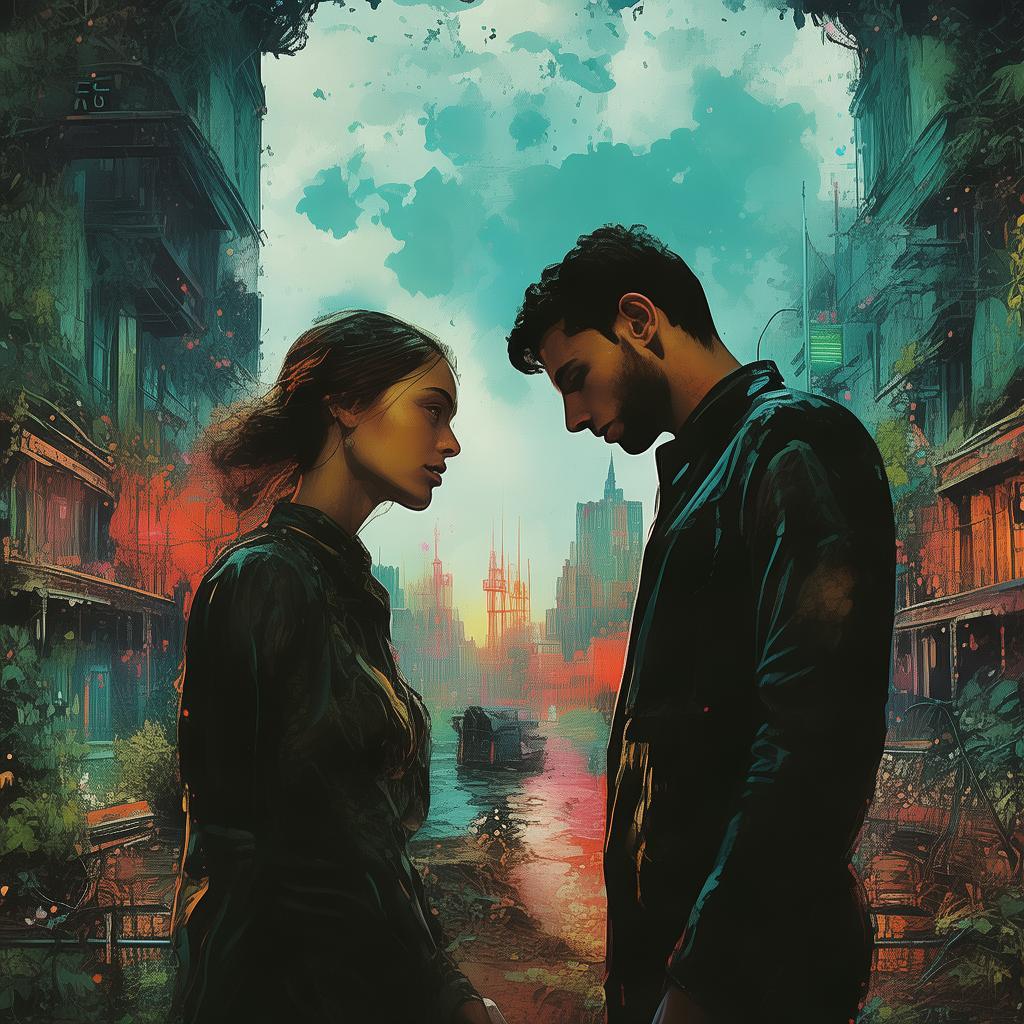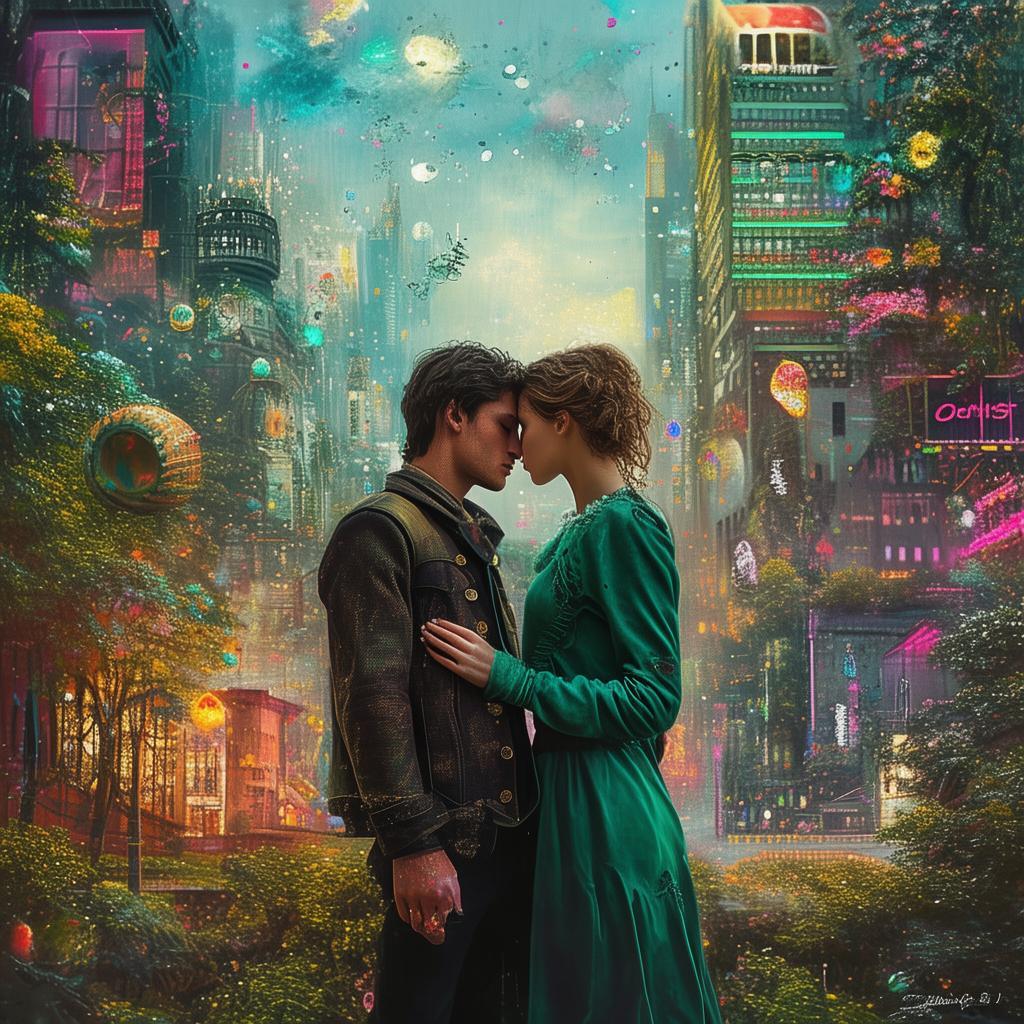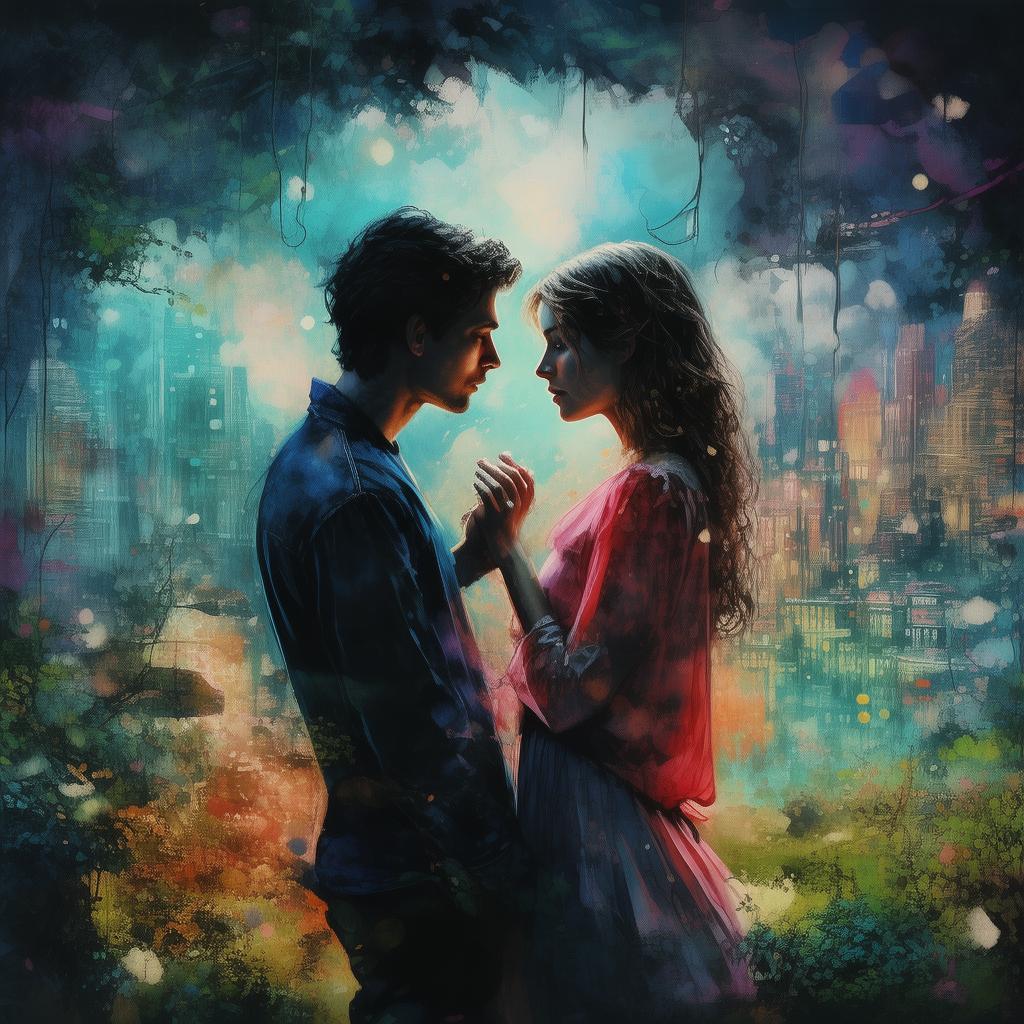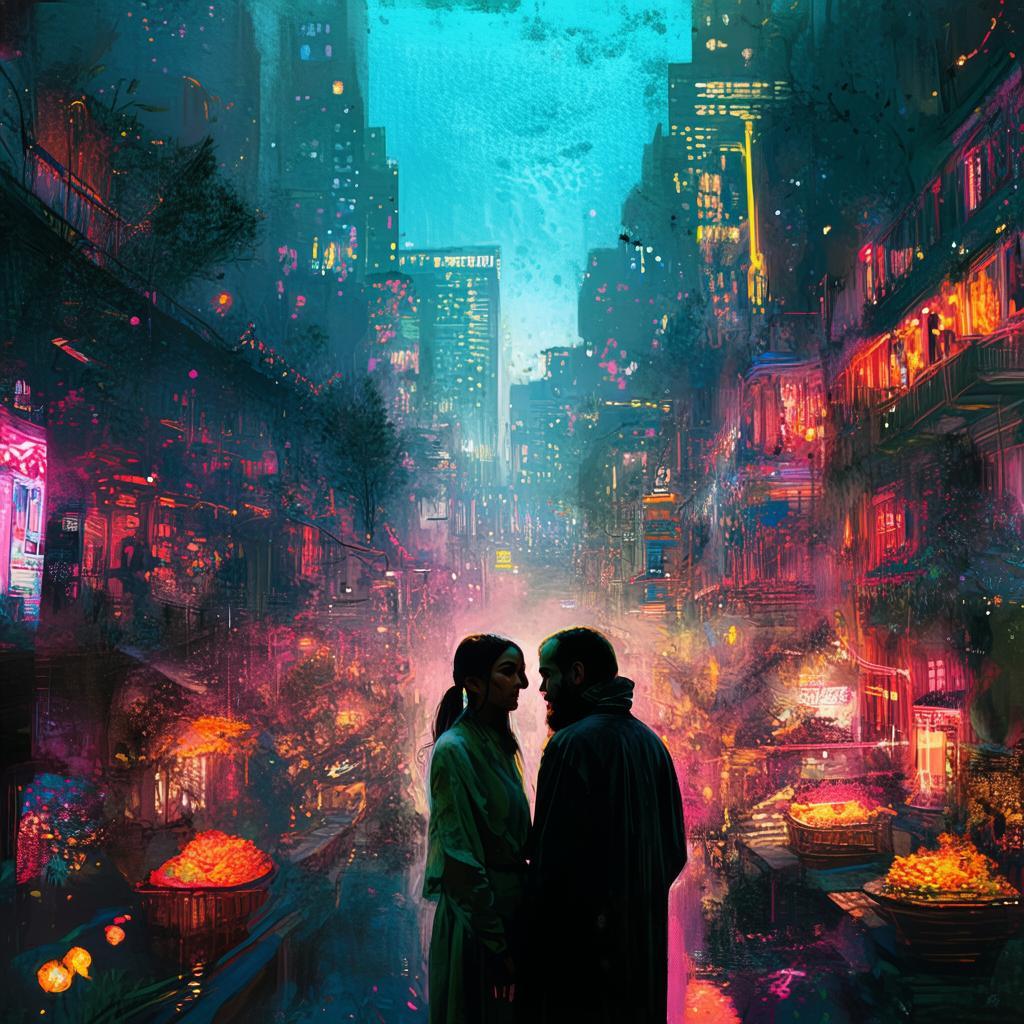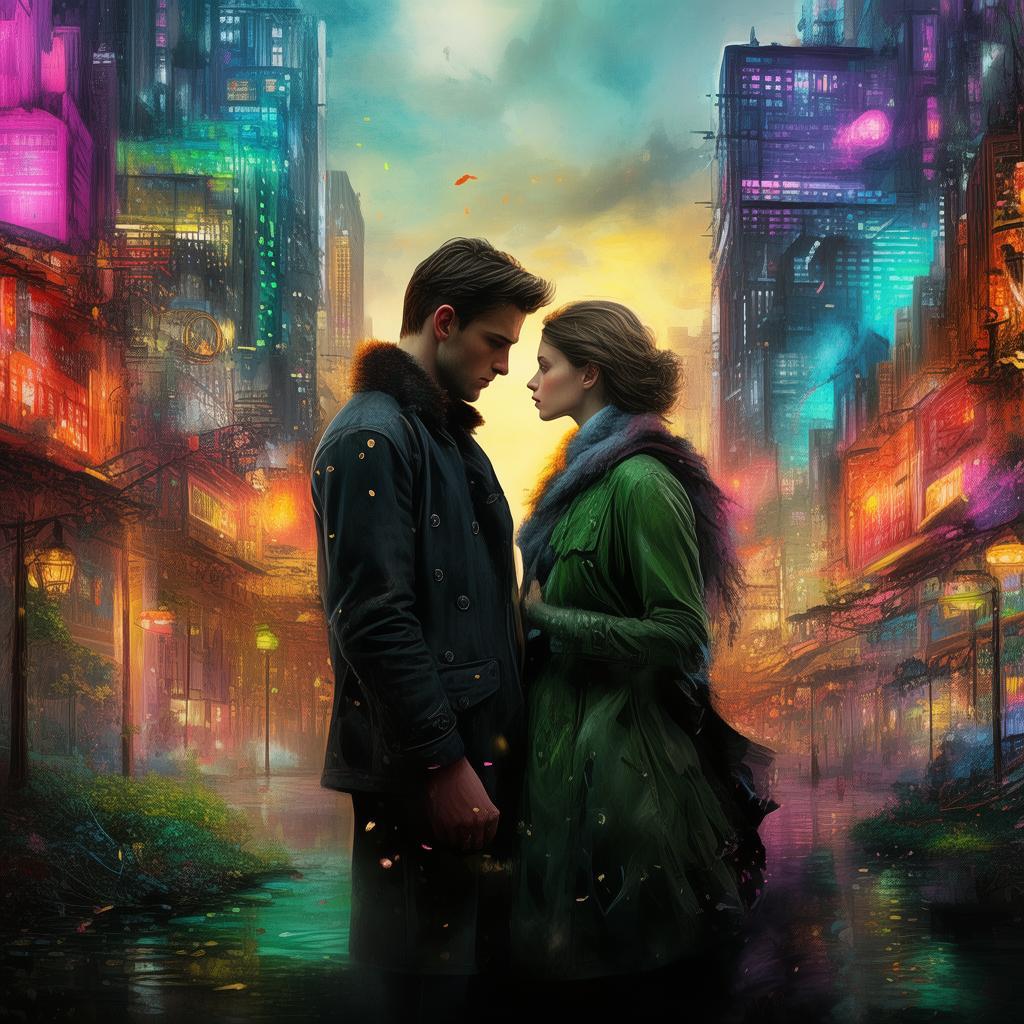The Heart of the Forbidden: A Forbidden Love's Reckoning
In the heart of revolutionary Beijing, amidst the chaos of the 1940s, there lived a story that would echo through the ages—a story of forbidden love, betrayal, and the unyielding spirit of the human heart. The year was 1949, and the city was ablaze with the fervor of change. The Communist Party was on the brink of seizing power, and the Nationalists were in full retreat. Amidst this maelstrom, two lives were destined to intertwine, only to be torn apart by the forces of their time.
Liu Hua was a young, idealistic revolutionary, a member of the Communist Youth League, who had dedicated her life to the cause of the people. She was passionate, intelligent, and fiercely loyal to her beliefs. But beneath her determined exterior lay a heart that yearned for something more—a connection, a love that was forbidden by the very principles she fought for.
Enter Chen Xiang, a handsome and charismatic artist with a penchant for painting the beauty of the ordinary. His life was a tapestry of art and solitude, until the revolution came knocking. Chen found himself drawn to Liu Hua's spirit, her unwavering dedication to the cause, and the fire in her eyes. Their attraction was immediate, a spark that threatened to ignite a forbidden passion.
The first encounter was a mere glimpse, a chance meeting at a revolutionary rally. Liu Hua, caught up in the fervor of the crowd, felt a strange pull toward the man who stood apart, observing with a keen eye. Chen, on the other hand, was intrigued by the fierce determination that radiated from her.
As the days turned into weeks, the two found themselves crossing paths more frequently. They shared conversations that were both passionate and intellectual, discussing the future of their country and the role of art in the new world. Their attraction grew, but it was a silent one, hidden away in the depths of their hearts, for the love they felt was forbidden.
The revolution was a whirlwind, and the couple found themselves caught in its fury. Liu Hua was assigned to work closely with the Communist Party's propaganda department, while Chen was tasked with capturing the essence of the struggle in his paintings. Their paths crossed, but they dared not let their feelings show.
One evening, as the city was enveloped in the glow of bonfires, Chen approached Liu Hua with a painting that depicted a woman in the midst of chaos. "This is for you," he whispered, handing her the canvas. Liu Hua's eyes met his, and for a moment, they were lost in each other's gaze. "It's beautiful," she replied, her voice barely above a whisper.
The following days were filled with clandestine meetings, stolen glances, and whispered confessions. But the shadows of their pasts loomed large. Liu Hua's family had been wealthy landowners, their land seized by the revolution. Chen, on the other hand, was the son of a wealthy businessman who had fled the country. Their backgrounds were worlds apart, and their love was a threat to the stability of their lives and the cause they both believed in.
The reckoning came in the form of a betrayal. A close friend of Liu Hua's, who was also a member of the Communist Party, discovered their affair. He was torn between his loyalty to the cause and his admiration for Chen. In a moment of weakness, he chose to betray Liu Hua, informing on her to the Party leadership.
Liu Hua was interrogated, accused of being a traitor to the revolution. She was separated from Chen, her world crumbling around her. In the face of her accuser's lies, Liu Hua stood firm, her love for Chen the only truth that kept her alive.

Chen, desperate to save Liu Hua, sought help from his father's old contacts. He was able to secure her release, but the damage had been done. Liu Hua's trust in him was shattered, and she vowed never to see him again.
Years passed, and the revolution had brought about the change they had all fought for. Beijing was now the capital of the People's Republic of China, and the streets were filled with the sounds of progress. Liu Hua had become a prominent figure in the new government, while Chen's art had found its place in the national gallery.
One day, as Liu Hua was walking through the gallery, she saw a painting that seemed to capture the essence of her own life. She recognized Chen's hand in it, and as she approached, she saw his reflection in the glass. Without a word, they exchanged a glance that held a lifetime of unspoken love.
The final reckoning came in the form of a single, silent embrace. They knew that their love was a part of their past, a memory that had to be cherished but never revisited. They walked away from each other, not as lovers, but as friends, bound by a love that had shaped their lives and the world around them.
In the end, their story was one of sacrifice, of love that had been tested by the flames of revolution. It was a testament to the human spirit, to the enduring power of love in the face of adversity, and to the courage to love even when the world said it was forbidden.
✨ Original Statement ✨
All articles published on this website (including but not limited to text, images, videos, and other content) are original or authorized for reposting and are protected by relevant laws. Without the explicit written permission of this website, no individual or organization may copy, modify, repost, or use the content for commercial purposes.
If you need to quote or cooperate, please contact this site for authorization. We reserve the right to pursue legal responsibility for any unauthorized use.
Hereby declared.



